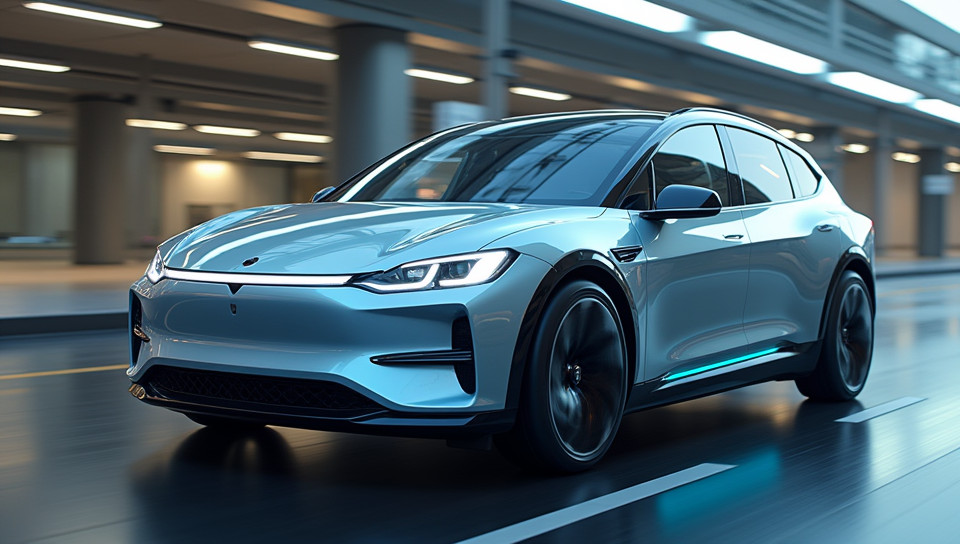Electric vehicle technology is advancing at a rapid pace 86%

Electric Vehicle Technology on the Fast Lane
As the world grapples with climate change, air pollution, and depleting fossil fuel reserves, electric vehicle (EV) technology is poised to revolutionize the way we think about transportation. With governments, automakers, and startups racing to develop more efficient, affordable, and sustainable EVs, it's no wonder that this industry is experiencing an unprecedented growth spurt.
The State of Electric Vehicle Technology Today
Electric vehicles have been around for over a century, but it wasn't until the 21st century that they started gaining traction. In recent years, EVs have become increasingly popular due to their numerous benefits, including zero tailpipe emissions, lower operating costs, and smoother, quieter rides.
Key Advancements Driving Electric Vehicle Growth
- Improved battery technology: Advancements in lithium-ion batteries have increased range, reduced charging times, and made EVs more affordable.
- Increased investment in research and development: Governments and companies are pouring billions of dollars into R&D to improve EV efficiency, performance, and affordability.
- Growing demand for sustainable transportation: As concerns about climate change and air pollution grow, consumers are increasingly seeking out eco-friendly alternatives to traditional gas-powered vehicles.
The Future of Electric Vehicle Technology
As EV technology continues to advance at a rapid pace, we can expect to see even more significant improvements in the coming years. Some potential developments on the horizon include:
- Solid-state batteries: These next-generation batteries promise to be even more efficient and powerful than lithium-ion batteries.
- Autonomous vehicles: Self-driving cars will not only enhance safety but also enable new mobility solutions for the elderly, disabled, and those who can't drive themselves.
- Vehicle-to-grid technology: This innovative system allows EVs to act as energy storage units, providing a stable source of power during grid outages or periods of high demand.
Conclusion
Electric vehicle technology is indeed advancing at an incredible pace. As governments, companies, and consumers continue to push the boundaries of what's possible with EVs, we can expect to see transformative changes in the way we travel and interact with our environment. With its potential to reduce emissions, improve air quality, and create new economic opportunities, the future of electric vehicle technology looks brighter than ever.
- Created by: Amelia Rivera
- Created at: Aug. 14, 2024, 9:38 p.m.
- ID: 7115

